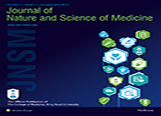Publications-33
| Choosing the proper interface for positive airway pressure therapy in patients with acute respiratory failure. | |
|
Abstract: Noninvasive ventilation (NIV) is an effective treatment for a significant proportion of patients with acute respiratory failure (ARF). The success of NIV, however, depends on several factors, a major one of which is the selection of the proper interface. The choice and application of... |
| Long-term adherence to continuous positive airway pressure in patients with rapid eye movement-only obstructive sleep apnea: a prospective cohort study. | |
|
|
| NIV in Type 2 (Hypercapnic) Acute Respiratory Failure. | |
|
Abstract: Noninvasive ventilation (NIV) refers to providing ventilatory support without the use of invasive artificial airway. The use of NIV has markedly increased recently and is currently regarded essential in the management of acute respiratory failure and in particular acute hypercapnic respiratory failure (AHRF). |
| The Choice of Interface. | |
|
|
| The effects of diurnal intermittent fasting on the wake-promoting neurotransmitter orexin-A. | |
|
Abstract: BACKGROUND: Food restriction has been demonstrated to increase the alertness in different species and to increase the levels of the wake-promoting neurotransmitter orexin. We hypothesized that diurnal intermittent fasting (DIF) increases orexin-A levels during fasting. Therefore, we conducted this study to assess the effects of DIF, during the month of Ramadan, on orexin, while controlling for lifestyle changes that may accompany.. |
| Assessment of Sleep Quality, Daytime Sleepiness, and Depression among Emergency Physicians Working in Shifts. | |
|
Abstract: Background: Around-the-clock provision of medical care is needed particularly in acute care areas. Emergency physicians are constantly affected by rotating shifts. Therefore, we conducted this study to assess the sleep quality, daytime sleepiness, and depression among emergency physicians... |
| Welcome to the Inaugural Issue of the JNSM; Let's Dream Big. | |
|
|
| Choosing the Proper Interface for Positive Airway Pressure Therapy in Subjects With Acute Respiratory Failure. | |
|
|
| Sleep and circadian rhythms in health and disease - a complex interplay. | |
|
Sleep and circadian rhythms in health and disease: a complex interplay. January 2018European Archives of Psychiatry and Clinical Neuroscience DOI: 10.1007/s00406-018-0866-6
Zaki NFW1, Spence DW2, BaHammam AS3, Pandi-Perumal SR4, Cardinali DP5, Brown GM6...
|
| The sleep architecture of Saudi Arabian patients with Kleine-Levin syndrome. | |
|
|



 Abstract: BACKGROUND: Obstructive sleep apnea (OSA) during rapid eye movement (REM) sleep is a special form of OSA that occurs predominantly during REM sleep. No study has assessed the long-term adherence to continuous positive airway pressure (CPAP) among patients with REM-only OSA. To objectively assess the long-term adherence to CPAP therapy among patients with REM-predominant (REM-only) OSA...
Abstract: BACKGROUND: Obstructive sleep apnea (OSA) during rapid eye movement (REM) sleep is a special form of OSA that occurs predominantly during REM sleep. No study has assessed the long-term adherence to continuous positive airway pressure (CPAP) among patients with REM-only OSA. To objectively assess the long-term adherence to CPAP therapy among patients with REM-predominant (REM-only) OSA...




